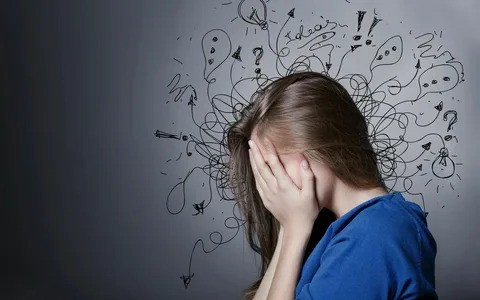
Sleep Deprivation and Pain: Unraveling the Connection for Improved Health Introduction:
Chronic pain and sleep deprivation are two common health problems that frequently coexist and interact, forming a complex interaction that affects a person’s general health and well-being. Inadequate or low-quality sleep, or sleep deprivation, can have a significant impact on how sensitive and aware one is of pain, aggravating chronic discomfort and making daily tasks more difficult. In this piece, we explore the relationship between pain and sleep deprivation, revealing the complex dynamics between the two and offering solutions for enhancing wellbeing.
Comprehending the Impact of Sleep Deficit:
When people regularly don’t get enough restorative sleep, either because they have trouble falling asleep, staying asleep, or finding restorative sleep, it’s known as sleep deprivation. Lifestyle factors like inconsistent sleep habits, excessive screen time before bed, and high levels of stress or worry are common causes of sleep deficiency. In addition, medical disorders such restless leg syndrome, sleep apnea, and insomnia can exacerbate sleep disorders and sleep deprivation.
Lack of sleep has consequences that go beyond just making you feel tired and groggy during the day. Lack of sleep can have an adverse effect on a number of physical and mental health issues, such as immune system performance, mood management, cognitive function, and cardiovascular health. Furthermore, there is a strong correlation between the perception and experience of pain and sleep deprivation, with insufficient sleep leading to heightened pain sensitivity and discomfort.
The Connection Between Pain and Lack of Sleep:
There is a reciprocal relationship between sleep deprivation and pain, whereby each element influences and exacerbates the other. Lack of sleep can change the way the brain processes pain, making people more sensitive to and aware of their suffering. Additionally, lack of sleep disrupts the body’s mechanisms for inhibiting pain, making it harder for the body to control pain signals and increasing sensitivity to pain.
On the other hand, persistent pain disorders can exacerbate sleep disorders and sleep deprivation, leading to a vicious cycle of suffering and insomnia. Because of pain-related discomfort, people with chronic pain may have trouble falling or staying asleep, which can result in fragmented and non-restorative sleep patterns. The cycle of sleep deprivation and persistent discomfort can be sustained by additional sleep disruptions that intensify pain perception and sensitivity.
Lack of Sleep’s Effect on Pain Threshold:
Lack of sleep is linked to modifications in the brain’s pain processing pathways, which affect how much pain is felt and tolerated. People who don’t get enough sleep could be more sensitive to pain and have a lower pain threshold, which makes them more vulnerable to the harmful consequences of pain and discomfort. Furthermore, lack of sleep can worsen emotional control and cognitive performance, which exacerbates the negative effects of pain on general wellbeing.
Sleep problems are frequently associated with chronic pain illnesses including fibromyalgia, arthritis, or chronic lower back pain. This can lead to a difficult cycle of sleep deprivation and increased pain sensitivity. When chronic pain and sleep deprivation combine, it can negatively affect a person’s quality of life by affecting their ability to perform physically, emotionally, and generally.
Techniques for Handling Pain and Lack of Sleep:
A comprehensive strategy that tackles both chronic pain and sleep loss at the same time is needed to manage them together. The following are some methods for treating pain and lack of sleep as well as enhancing general health and wellbeing:
Form Healthy Sleep Habits
Managing sleep deprivation and enhancing the quality of your sleep depend heavily on your use of sound sleep hygiene practices. This include keeping a regular sleep schedule, establishing a calming bedtime ritual, and enhancing the sleeping environment to encourage sound sleep.
Practice Relaxation Techniques
Before going to bed, you can reduce stress and encourage relaxation by practicing relaxation techniques like progressive muscle relaxation, deep breathing exercises, or guided imagery. These methods can assist people in relaxing and getting ready for sleep via mind and body.
Limiting screen time and stimulants before bed can help improve the quality of your sleep. Avoiding stimulants like caffeine and nicotine close to bedtime and limiting screen time on electronic devices can assist. Screen blue light can interfere with the body’s normal circadian rhythm and melatonin production, which is a hormone that controls sleep.
Seek Professional Assistance
People who are experiencing chronic pain and sleep deprivation may find great support and direction by speaking with healthcare professionals, such as sleep specialists, pain management specialists, and mental health specialists. To effectively address both factors, healthcare providers can perform thorough assessments, create individualized treatment plans, and deliver evidence-based interventions.
In summary:
A person’s general health and well-being are affected by the intricate link between sleep deprivation and chronic pain. Through comprehension of the correlation between pain and sleep deprivation and execution of tactics to regulate both elements, people can enhance the caliber of their sleep, mitigate persistent discomfort, and augment their general health and welfare. To attain better health and well-being, it is crucial to prioritize good sleep hygiene, engage in relaxation exercises, cut back on stimulants before bed, and seek expert assistance when necessary. People can end the vicious cycle of chronic pain and sleep deprivation, promoting greater sleep and general wellness, with proactive management and assistance.


